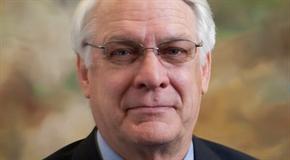Features
Dutch Auction Responses

The concept is simple: when a (popular) event is launched, set ticket prices high – even unreasonably high – across the board. One price for an entire arena, say $900 per seat.
Consumers have a week to buy at that price before it drops to $800. Happel suggested that rabid fans who want front-row seats will buy tickets right out of the gate, considering those seats would probably wind up as $900 or more on StubHub anyway. The market would adjust itself as all the seats are sold, with those in the back selling for less – possibly a lot less. We wondered out loud if our readership would agree or disagree with Dr. Happel’s concept, and we got a few comments on the story.
“Dr. Happel seems to be advocating a standard free-market approach,” said Patrick Hagin, managing partner of The Pageant theatre in St. Louis. “Works out great for the fans with a lot of money – not so great if you don’t and your only chance at leveling the field is getting there first. “That said, it’s an interesting viewpoint and he would be great on a panel at [Pollstar Live!].
Tim Ryan of ticketing service Upriise didn’t agree with Happel’s argument that scalping is good for consumers.
“Because of scalping, we now have pre-sales, fan club sales, secondary markets that sometimes pose as primary ticket outlets (or even venues), the emergence of platinum seating and artists scalping their own tickets,” Ryan said. “All of this has created a terribly confusing and painful consumer experience.
And that experience could start turning fans away from attending more concerts, if it hasn’t already. That’s bad for all of us in the concert industry and it’s time we start fighting scalping rather than figuring out how to make it part of our business process, or excusing it in the name of free markets.”
Tom Patania, president and CEO of Select A Seat, wrote Pollstar a lengthy email that respectfully disagreed with Happel’s endorsement of Dutch auctions, arguing for the exact opposite: launch with a low price, then raise it.
“No one likes to buy a stock at its peak price,” Patania said. “You would see consumers retrained to buy early and you would see the marketplace correct itself.” Patania noted that festivals have Early Bird pricing and it is successful. The same goes for Radio City Music Hall Christmas Spectacular, which sells out annually with an early, low ticket price.
“I have seen Feld Entertainment test this as well,” he said. “This industry is akin to the airline industry, as well, and look at what they have done: they have set the perception that if you buy last-minute you are going to pay higher prices than if you booked earlier.”
We did receive one last, private correspondence from a promoter who apparently was intrigued by Happel’s idea and wanted to discuss it further with him. We can’t reveal who emailed us but we can say it was a really, really, really big promoter.